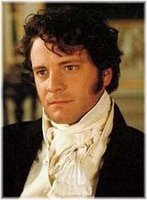Famous Last Words

At the beginning of the course we looked at first lines and paragraphs, but of equal importance is the way in which an author wraps the whole story up. The last line is the memory that you leave with the reader.
“And they all lived happily ever after” is the classic last line. It’s not just a formula – it’s a reassurance and it sums up the theme of the story. In fairy tales, folk tales and romances the story is about challenging that happiness, and the reassurance for the reader is that all is well and will continue to be so after the end of the book. Jane Austen uses this theme to end her books.
The ending has to have a rhythm that sounds right and I think that Jane Austen’s books do have that natural final cadence.
There are various different ways to end a book and I’ve quoted some of them here just for fun.
THE END ending. Vanity Fair ends with the words – “and this is the end of the story.” This could be seen as very old fashioned but you could probably get away with it in a sort of post-ironic sense these days and people would find it very funny.
The summing up ending : “I lingered round them under that benign sky; watched the moths fluttering among the heath and hare-bells; listened to the soft wind breathing through the grass; and wondered how anyone could ever imagine unquiet slumbers, for the sleepers in that quiet earth.” (Emily Bronte Wuthering Heights)
The Plot-resolving ending “Cedric managed the whole thing quite beautifully. As soon as Polly had completely recovered her health and her looks he put Lady Montdore and Boy into the big Daimler and rolled away with them to France. The field was thus left to a Morris Cowley which, sure enough, could be seen day after day in the drive at Silkin. Before very long Polly got into it and was taken to Paddington Park, where she remained.” (Nancy Mitford Love in a Cold Climate)
The unresolved ending “He took off his cap and threw it, sent it skimming across the grass the way his father used to skim flat stones across the sea. Then he tugged the gun from his waistband, checked to make sure it was loaded, and moved towards the silent trees.” (Robert Harris Fatherland)
The tentative ending: “Tonight, for the first time ever, I can sort of see how it’s done.” (Nick Hornby High Fidelity)
The frankly bizarre ending “Yukiko’s diarrhoea persisted through the twenty-sixth and was a problem on the train to Tokyo” (Junichiro Tanizaki, The Makioka sisters)
Okay, so the last one probably wouldn’t do in a romance, but it does have the benefit of being original and different! Food for thought…
Happy writing!
Nicola



